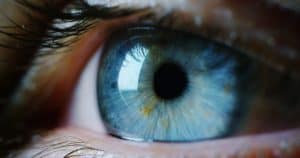
Recognizing the Symptoms of Dry Eye
If you struggle with dry eye, you might notice burning, stinging, redness, blurred vision, or the feeling that something is stuck in your eye. These symptoms can make daily activities—like reading, working at a computer, or even driving—challenging. Understanding what’s causing your discomfort is the first step toward finding real relief and getting back to your normal routine.
Artificial Tears: The First Line of Defense
For many people, over-the-counter artificial tears are the go-to solution for occasional dryness. These lubricating drops can supplement your natural tears and provide temporary relief from irritation and discomfort. There are various formulations, so it’s important to choose a preservative-free option if you use drops frequently. While artificial tears work well for mild cases, they might not be enough if your symptoms are more severe or persistent.
Prescription Medications for More Relief
When basic drops aren’t enough, prescription medications can offer more lasting comfort. Certain medications work by reducing inflammation and helping your eyes produce more of their own natural tears. These treatments are especially helpful if your dry eye is linked to chronic inflammation or an underlying medical condition. Your eye doctor can help determine whether a prescription medication is right for you.
In-Office Treatments and Advanced Therapies
If your symptoms continue despite using drops and prescription medications, advanced therapies may be recommended. One of the most effective approaches is punctal plugs, tiny devices placed in your tear ducts to keep moisture on the eye’s surface longer. Other procedures, such as intense pulsed light (IPL) therapy or thermal pulsation treatments, target the underlying causes of dry eye by improving the function of your eyelid glands.
Lifestyle Changes and Home Strategies
Alongside medical treatments, certain lifestyle changes can also make a big difference. Staying hydrated, using a humidifier, wearing wraparound sunglasses, and taking breaks from digital screens can help reduce symptoms. Managing conditions like allergies or blepharitis may also play a key role in keeping your eyes comfortable.
Take the Next Step Toward Comfortable, Healthy Eyes
If you’re experiencing persistent dry eye symptoms or have questions about your eye health, reach out for expert guidance. For routine eye exams and ongoing care, connect with your local optometrist. If you’re seeking surgical or sub-specialty consultation in the Bay Area, you can email Dr. Mandel directly with your questions or call the office at 510-886-3937. With the right support, you can find a path to clearer vision and lasting comfort.